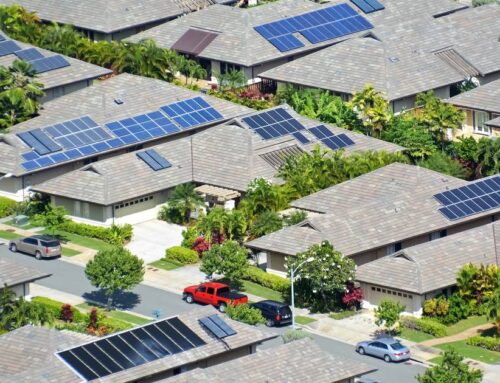Columnist Johanna Neumann: Let Americans choose clean energy
June 11, 2025
It makes no sense to dial back clean energy tax credits for solar and energy-saving tech
Wind and solar power reduce our dependence on polluting fossil fuels, with big benefits for our environment and health. That’s why it’s welcome news that Massachusetts ranked 5th in the nation for electric vehicle charging ports and 11th for solar generation at the end of 2024. Here in the Bay State, and in fact, across the country, renewable energy technologies have grown rapidly over the past decade.
Anyone who’s gone to the Mullins Center at UMass has likely parked their car under a solar canopy. It’s become commonplace to find yourself behind an electric vehicle at a Rt. 9 stoplight, and the costs of solar panels have come down to the point where local property developers are proposing to use solar panels to screen equipment on the roof of a proposed new building, instead of relying on other materials to get the job done.
Every year more Americans have gone solar or taken advantage of energy-efficient technologies such as heat pumps and electric vehicles that can run on renewable energy. Some do it for the environment, some do it because it makes financial sense. After all, many of these technologies pay for themselves over time through utility bill savings, but upfront costs can remain a barrier to wider adoption. That’s where tax credits come in.
Tax credits make it possible for more Americans to choose to power their lives with clean energy by lowering the costs of going solar, buying or leasing an electric vehicle, installing charging or making a home or business more energy-efficient. The incentives cover up to 30% of the cost of many clean energy upgrades. In 2023, 3.4 million Americans used these tax credits for clean energy or energy efficiency home improvements, saving more than $8 billion, and helping spur adoption.
These clean energy tax credits are popular, but despite public support behind the policy, some in Congress continue efforts to dismantle tax credits, with a ramp up in intensity when the House Ways and Means Committee began debate Tuesday on a budget proposal last week that would take away tax credits for homeowners who install solar panels or energy-efficient heat pumps at the end of 2025.
Some leaders are speaking out. In addition to widespread support among Democratic members of Congress, 21 House Republicans have written to the Speaker of the House and 4 Republican senators wrote to the Senate Majority Leader cautioning against a wholesale repeal of clean energy tax credits.
Clean energy advocates, myself included, have been working to show how America benefits when we get more of our power from renewable sources. From Cedar Rapids, Iowa to Anchorage, Alaska and Bakersfield, California to Omaha, Nebraska supporters of renewable energy are making the case. In recent months, the solar-powered headquarters of Crayola and Frank Lloyd Wright’s architectural masterpiece Falling Water have hosted solar tours to tell the story of how renewable energy is helping them. Churches and schools, as well as breweries, nature centers and hog farms are sharing their stories too.
Article continues after…
We all benefit when we get more of our energy from renewables. The solar and wind power we’ve already installed in the U.S. have already cut health-threatening sulfur dioxide and nitrogen oxide pollution from power plants by nearly 1 million metric tons between 2019 and 2022 – enough to prevent an estimated 1,400 premature deaths in 2022. These renewable energy sources have also cut global warming pollution by 900 million metric tons between 2019 and 2022 — an amount of pollution greater than the state of Texas emits in a year. Not to mention the reduced threats to our waterways such as coal ash spills and leaks of fracking wastewater.
A rapid shift to clean, renewable energy will give us healthier, more vibrant communities today, and a more livable future for our kids and grandkids. And we all have a role to play. It will take individuals, businesses, houses of worship, and others to help make the switch to renewable energy for a cleaner, healthier world; both through their own behavior and through their advocacy.
If you’ve already taken steps to power more of your life with renewable energy, I urge you to join the Voices for Clean Energy organizing project, which highlights the stories of folks from across the country who are choosing to take steps to reduce energy waste and power their lives with clean energy.
And if you don’t yet have your own clean energy story to tell, but hope to at some point, you can email your member of Congress and urge them to oppose efforts to take away tax credits for energy efficiency and renewable energy, so that it’s easier for more people to choose clean energy.
Johanna Neumann of Amherst has spent the past two decades working to protect our air, water and open spaces, defend consumers in the marketplace and advance a more sustainable economy and democratic society. She can be reached at columnists@gazettenet.com.
Search
RECENT PRESS RELEASES
Related Post




